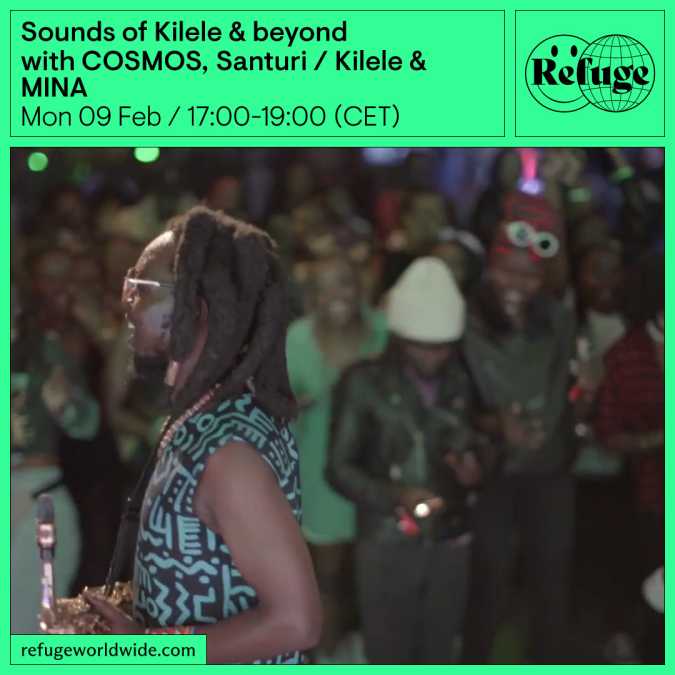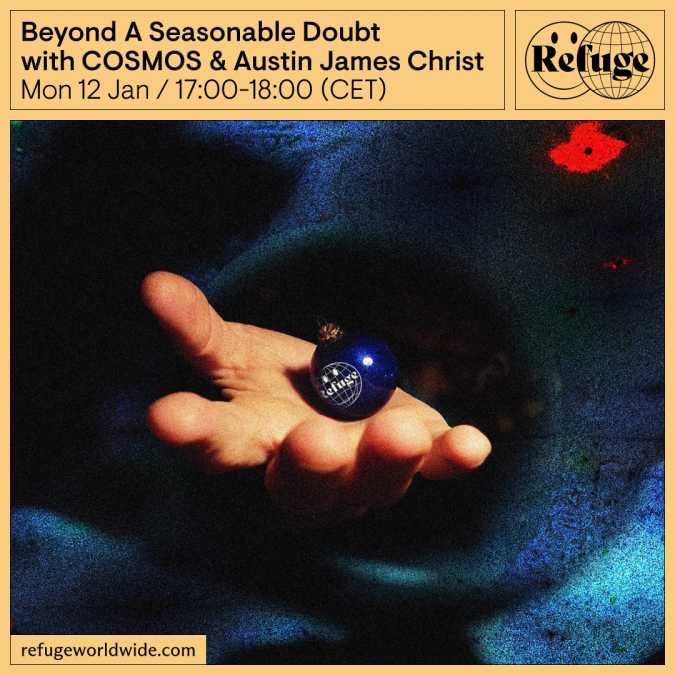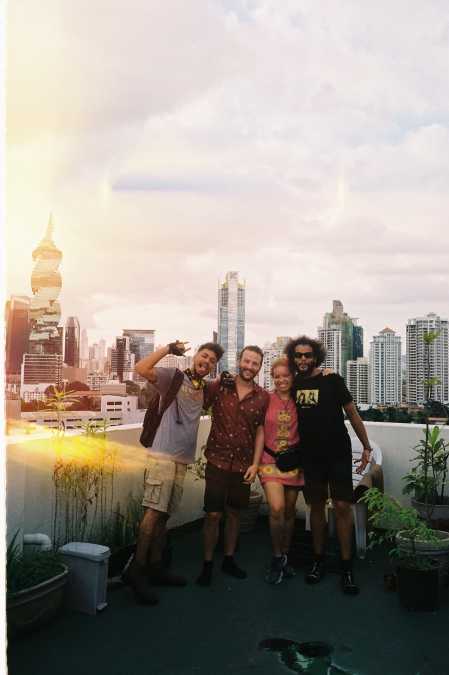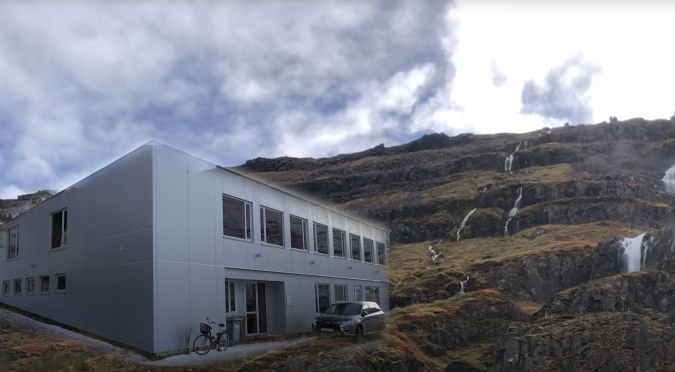COSMOS x Honiunhoni announce their 2024 Embassy in Karachi, Pakistan
Honiunhoni is an independent production company and record label founded by musician and anthropologist Daniyal Ahmed.
Rooted in the ethos of ethnographic research, Honiunhoni celebrates Pakistan's cultural richness and diversity by curating and highlighting the country's (often marginalized) indigenous folk and classical musicians. Honiunhoni specializes in capturing live music in meaningful and evocative settings, preserving the authenticity of each artist’s sound and vision. With an effective use of new media and a relentless global touring schedule, Honiunhoni connects Pakistan’s ever-evolving folk tradition with new audiences.
Here, label founder Daniyal Ahmed charts his musical journey, from playing in underground bands to becoming engulfed in traditional music, and embarking on many adventures to find the unsung instrumentalists of rural Pakistan.
Interview by COSMOS
Photos courtesy of Honiunhoni
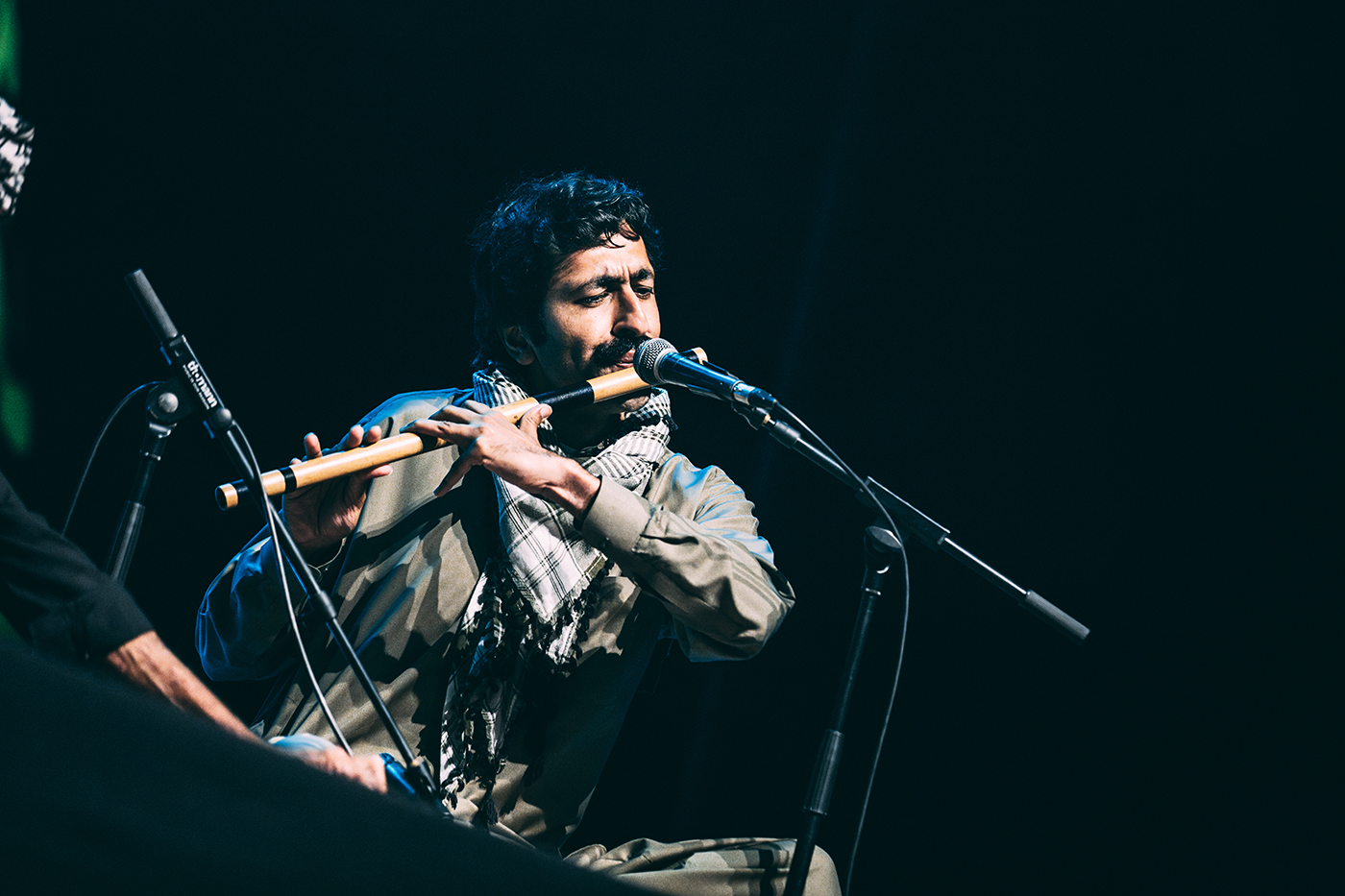
Let’s start with your own journey into music. How did you become an instrumentalist, performer, and eventually a label boss?
I grew up in Karachi, born and bred. I got into music when I was still in school, playing in underground bands, mostly guitar and singing covers of Western bands. Through my family I heard a lot of traditional music as well.
You also pursued another career simultaneously, right?
I studied the humanities, and I was teaching after I graduated. And then I got my Master's degree from Heidelberg in Germany.
How did that happen?
Honestly, I was just looking for master's degrees outside of Pakistan, and the program at the South Asia Center in Heidelberg seemed good. I was always into field work and field research. So I thought, okay, I'll do Anthropology and then pick a music related field.
I did my Master's thesis on the sound and the music surrounding the so-called asylum crisis in Germany in 2015. I did recordings of a soundscape in an asylum house and the different music that was being played there. And then I moved back to Pakistan at the end of 2018, after I had finished my degree.
I'm curious about this shift from playing in more Western-style bands to delving deep into your native folk tradition. How did that come about?
I was 22 when I picked up the bansuri. I'm 34 now.
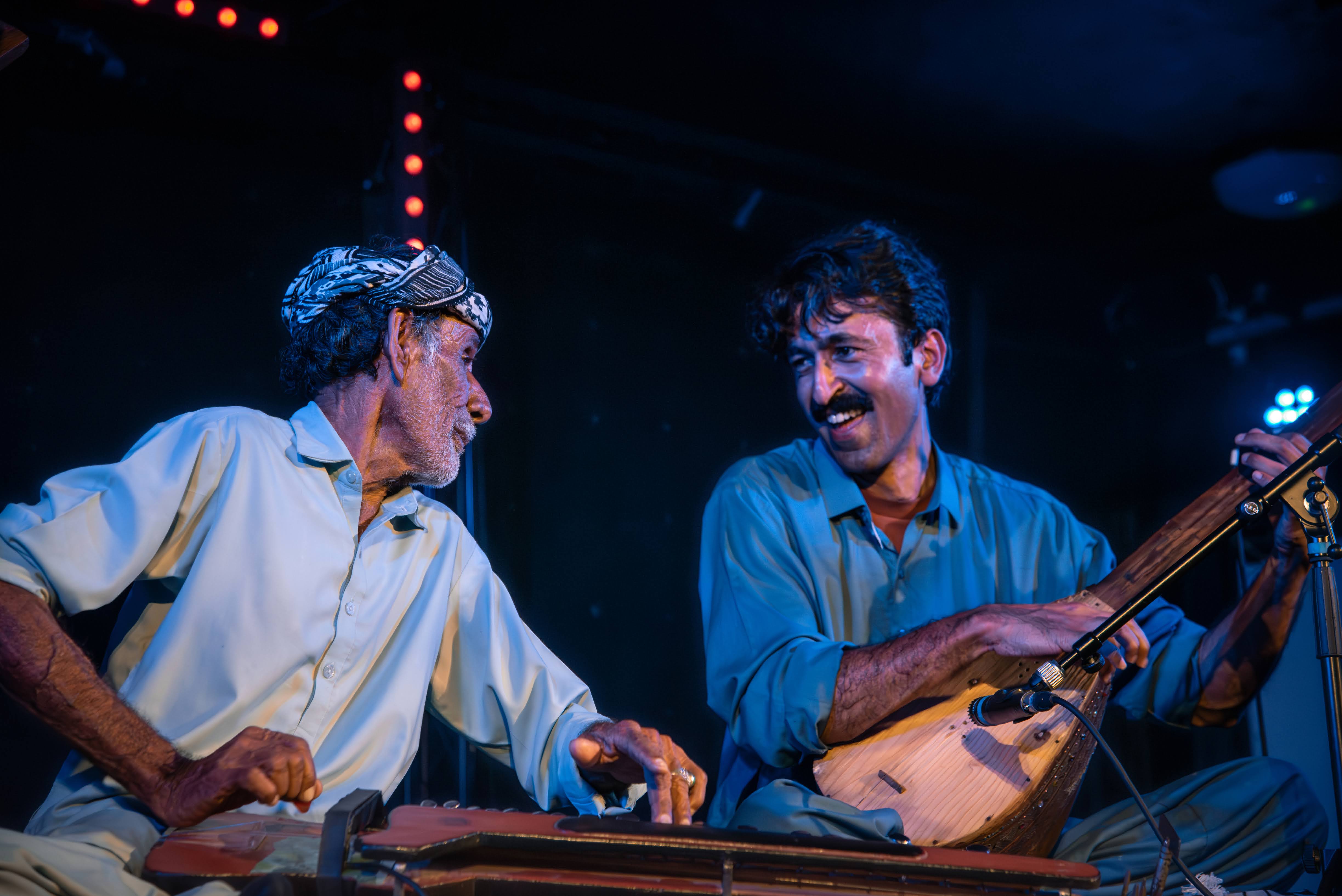
By the way, that’s what “Ustad” means, right? That’s a term that comes up a lot when one engages with the Honiunhoni label.
You are recognized as an Ustad, once you've established yourself, and you have students, and you're a performer. I started learning with a master Ustad, too. His name is Ustad Salamat Hussein. He started teaching me about raag music, but also about folk. That's what got me into the classical and folk world. I carried that practice through for many years.
When I moved back to Pakistan, I really got involved with the local music scene. I was also doing a lot of work with Karachi Community Radio with my friend. KCR operates very much in a different genre, of course.
When you came back to Karachi, what kind of scene did you find? More recently, Western media started taking note of the electronic underground scene over there: the illegal raves that started a couple of years ago, Karachi Community Radio… You were involved in that scene, just not as a musician?
Not as a musician myself, more as a producer with my friend Jahanzeb. He was really the founder of Karachi Community Radio and I went along as the co-founder. When I moved back, I just wanted to be active in the music scene. The gang that I grew up with playing music, they all had gone in this electronic direction. I never went there, but I was always around it.
I then started teaching at Habib University, and they launched a music program. I was also working a lot with the All Pakistan Music Conference, whom I still work with. They're an NGO that promotes classical music. I started doing recordings for them and worked on documentary projects.
Documentation is a key word here, because to capture this kind of folk music, you have to physically travel, right?
Yes, I would take my weekend trips to go to the region of Sindh. I was very interested in these double flutes, the alghoza. I recently recorded an album with a brilliant alghoza player, which will be out in the next couple of months, hopefully. I started taking many trips with folk instrumentalists, checking out the scene outside the big cities, small village concerts...
How do you learn about these scenes then, if it's all word by mouth?
For concerts, I would drive down to Sindh on the weekend, or they would come to Karachi and we hang out. One person makes you meet another person, makes you meet another person. Slowly you’re forming a network.
Did your anthropological approach help with seeking out these instrumentalists? Like, you heard about Noor Baksh playing the benju in this specific region, and then would try and find him?
Some of them I knew about because I'd seen videos. Many of them didn't have videos or recordings as such, but they were well-known in their villages, or in their regions.
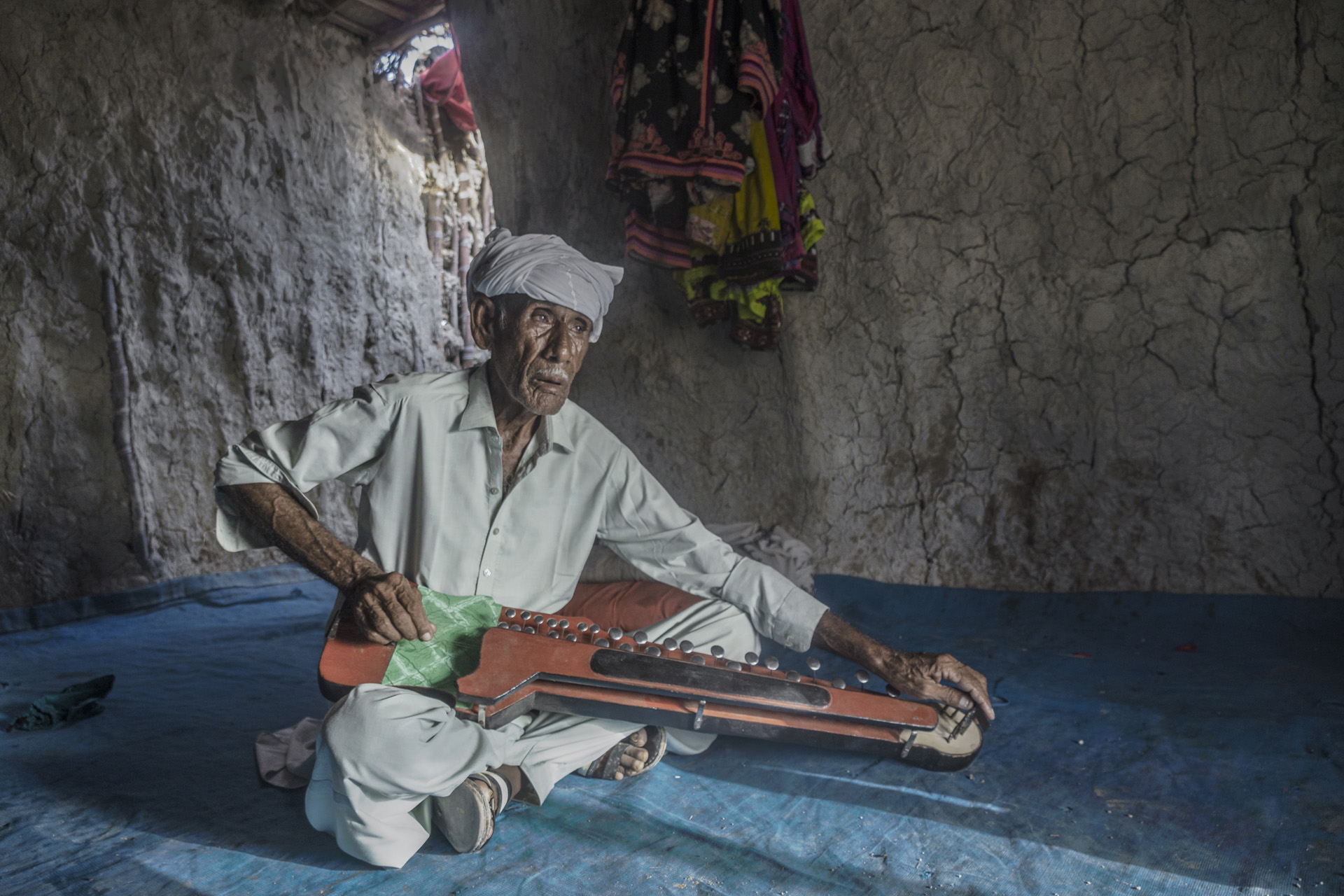
So, Honiunhoni pretty much started with you seeking out to find Ustad Noor Baksh, right?
Precisely. A couple of months before that, my phone had been stolen. I had not properly backed up a lot of behind the scenes stuff from a documentary shoot. So this time, I decided to start making Instagram stories of me trying to find this storied benju player, Noor Baksh, uploading the videos in real time, so that it's already archived.
And that’s when the idea of the label came to live?
I felt like, okay, let's try to think of a structure where I can share these recordings with people and support the communities that make the music. Give back to them, you know?
It’s interesting that the story of the label is not only one of folk traditions and anthropology, but also one of social media. And one of preservation, maybe? Preserving this music for new generations?
Hm. It depends on the kind of recordings you're doing. Nowadays, these people are getting recorded by phones all the time, when they're playing. Now, with YouTube, the whole scene changed, even for me as a researcher. You can’t be in 1000 villages, but if you figure out your YouTube algorithms, you start seeing all kinds of stuff.
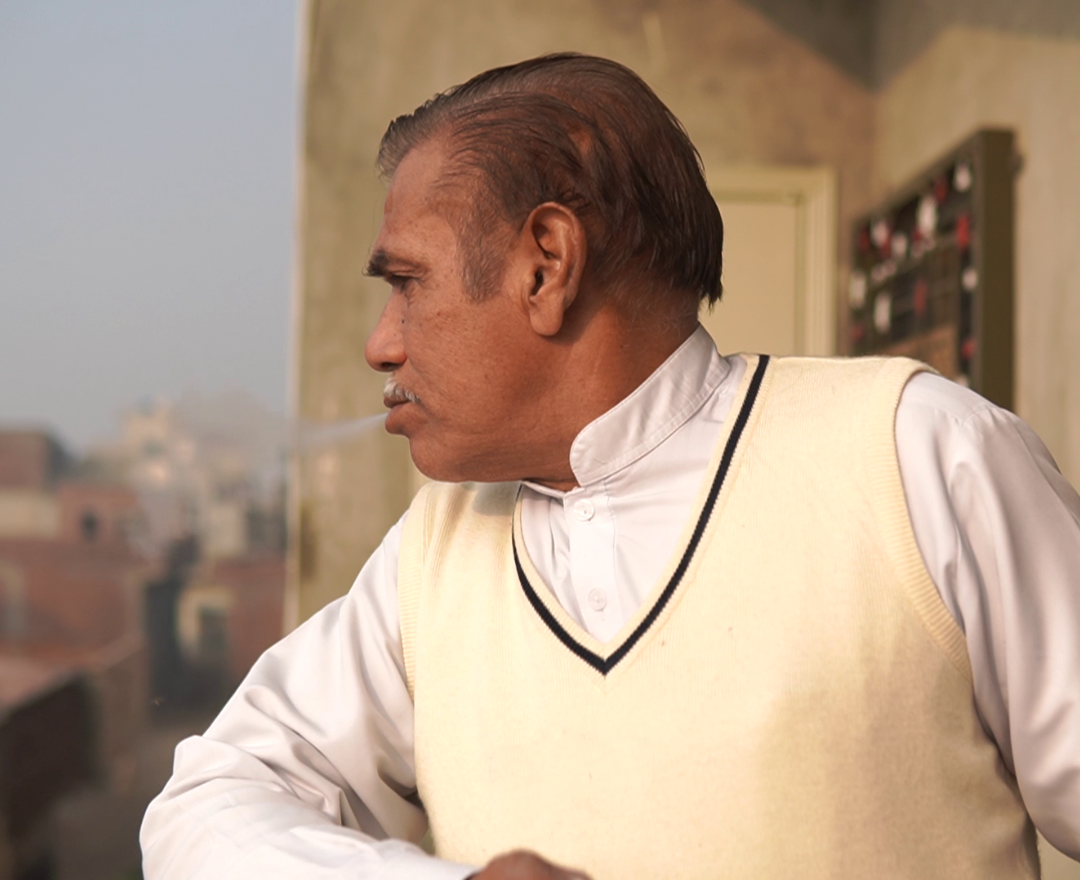
What are the societal functions of this music you’re recording? Is it mostly celebratory music played at parties, weddings, or grieving music for funerals and such?
Everything! It’s also healing music. Some of the music is being played in healing rituals and ceremonies. There's some music for birth, for funerals, a bit less in our side, but definitely some stuff for entertainment. For devotional practices.
That’s super interesting. I realize that even asking that way came from a biased perspective. You rather make it sound like this kind of folk music is doing perfectly fine, with or without any extra exposure.
Exactly! Media will always show you a certain image of Pakistani music. But once you go out of the big cities, that's not the music people are listening to. Even the way music is distributed in Pakistan is unique… I was working on research about how mobile phone shops distribute music. People would go to the shops, give them their mobile phone, and the repair guy would have folders of MP3s of all different kinds of music. They were like the real curators for the people.
So yeah, it's never been like, I'm a savior, going to the villages and preserving everything for the future. When you're doing this kind of work, this is always the trope that gets put on you. No, I'm just excited by how it's not as dead as we like to think.
So the real service is towards the general audience who doesn’t yet know about this music. It's not so much a service to the players or remote music cultures per se…
Yea, they're fine, they don’t need us. They’re doing their thing, man {laughs}.
Think about it: Ustad Noor Baksh made his music for decades, in his context. We haven't changed anything. It's literally the way he was always playing. But in this pure form, it was just so appealing to a broader audience.
The whole concept of traditional music, it’s almost a semantic problem. In a way, it is very much contemporary music, because it is being experimented with, it changes all the time. Yet it's always seen as this time capsule from the past, right?
It's seen like that, and it's marketed like that. And some of it does actually reflect that too, because it is a vehicle for traditions to be carried on. But tradition doesn't remain the same. It can’t. In order to be alive, it needs to soak in everything that's living and breathing around it. For me, it’s always been about exploring how tradition is being broadened, and changed around, and innovated. Many of the artists I work with, are doing that in some respect.
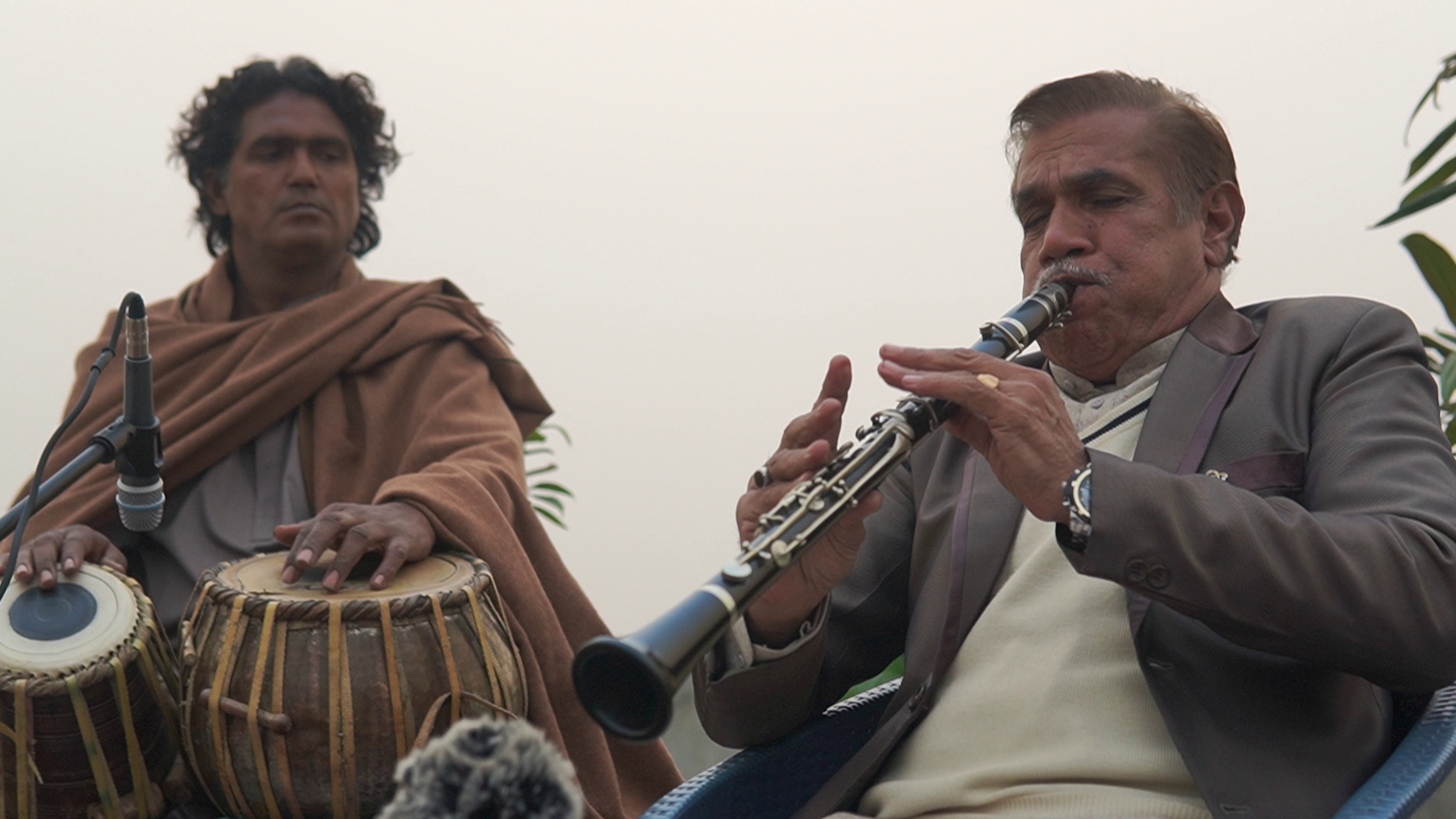
As we're already on the subject of Western and South Asian instruments and music traditions: maybe you can tell me about how you found Jaffar Hussain Randhawa?
I had seen him perform at the All Pakistan Music Conference in Karachi. And many years later, he was performing in Lahore and I was seeing, like a live stream of it. I'd seen him perform a couple of times, and then got introduced to him as well. I proposed to do a Honiunhoni style recording with him. And so we did that a couple of months later.
Can you explain a little bit about the context of his music style and the people he plays with?
He's a clarinet player. Obviously, clarinet, like the other band instruments, has somewhat of a colonial history because it came with the marching bands to South Asia. But already before him, at least in the last 100 years, there were always people trying to play Hindustani raga music on the clarinet. He comes from that lineage. It's a lesser tradition than it probably was maybe four or five decades ago, but he's definitely the most senior and established player in his field.
He's playing both raga music at classical music conferences, but also playing weddings with his band. Sometimes not just wedding music, but also devotional music. Again, with instrumentalists, you have all these repertoires mixed together.
You mentioned earlier that you proposed to record him and his band members “Honiunhoni style”. Can you elaborate on that? Because you don’t bring them to a studio space, but record them outside in the same style they’re rehearsing or performing.
Yes, I use a Zoom recorder and mics, and just do a live recording.
But firstly I go spend time with the musicians, exploring how the music exists in its society. I’m getting to know all relevant characters, capturing the jokes, the humor, the stories. All of that is very much a part of the process. When you’re enmeshing yourself in such a micro-community for some time, you’re becoming a part of this natural environment. It's also visually more interesting for me.
I'm just sitting right in front of them and listening. That's the kind of style I tried to replicate – mostly just using one camera angle, sometimes two. But all videos are pretty minimalist. It’s close to the natural experience, when I listen to them. Not going in there like a big production, coming in with a full crew.
So these low-key live recordings and footage, that’s the Honiunhoni style. By the way, what does it mean, Honiunhoni?
And can you tell us what’s next for the label?
We have a lot of recordings and three new releases already in the pipeline. One is with a great double flute player, and one with a brilliant young vocalist from Lahore. Then there’s a Qawwali recording with a band from Punjab that I was visiting. I just need a breather from touring to focus on the next releases {laughs}.
